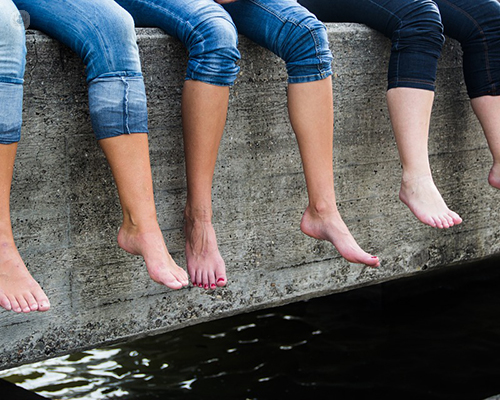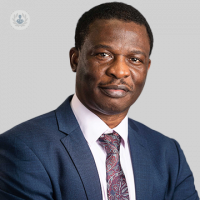Varicose veins: what to do when they become a problem
Escrito por:Varicose veins are enlarged veins which become swollen when the veins aren’t working properly. They often occur in the legs, or feet, and are relatively common – around one in four adults has them. They may not cause discomfort, but if they do, they can cause pain and irritation, and many patients find them unsightly.

What are varicose veins?
Veins pump blood around the body, and allow it to flow to the heart. Our veins have small valves, which open and close, letting blood through and stopping it from flowing backwards as it moves around the body. If the valves are damaged in some way, or are weak, blood can then flow backwards, causing them to become engorged and swell – these are varicose veins.
Why are varicose veins a problem?
Some varicose veins can cause skin to become irritated and feel sore in the area around the vein. This can irritate people so much that they have trouble sleeping, or find it difficult to live with the discomfort that varicose veins can bring. They can also be painful, and some patients are bothered by their appearance.
In some cases, varicose veins can cause further complications, such as blood clots in the leg, later leading to swelling, or significant pain, such as with deep vein thrombosis. When blood doesn’t flow as it should, and this goes on for a long period of time, it can cause venous insufficiency, which in turn may cause other problems such as varicose eczema or venous ulcers. However, it’s important to note that most of those with varicose veins do not develop serious complications.
What are the symptoms of varicose veins?
Veins may be dark purple, or blue, and can be raised and lumpy in appearance. You may feel an aching sensation in your legs, or muscle cramp (especially at night). Sometimes skin over the vein can feel dry, and itchy, causing irritation, and your legs may feel swollen and uncomfortable.
Can you prevent varicose veins?
Varicose veins can’t really be prevented, but there are certain measures you can take to keep your blood flow healthy, and if you have varicose veins, ease the discomfort. Make sure not to sit or stand for elongated periods of time, and move around regularly, taking breaks where you can put your feet up – this may help with any discomfort. Get regular exercise and keep as active as possible.
What is the treatment for varicose veins?
There are various treatments offered for varicose veins these days. Your doctor or specialist will always advise the best treatment for you as a patient considering all the factors. Treatments include:
- Foam sclerotherapy: injecting a foam-like substance in order to destroy the vein
- Laser surgery: where light beams are used to block the vein
- Radio frequency ablation: using radio frequency waves and heat to block the vein
- Endoscopic vein surgery: using a surgical device with a camera attached, to make a small incision and block the vein
The range of treatments is wide and your specialist will always help the patient choose the method best for what suits their needs. If you have any doubts about varicose veins and their treatment, make an appointment to see a doctor and discuss your options.


